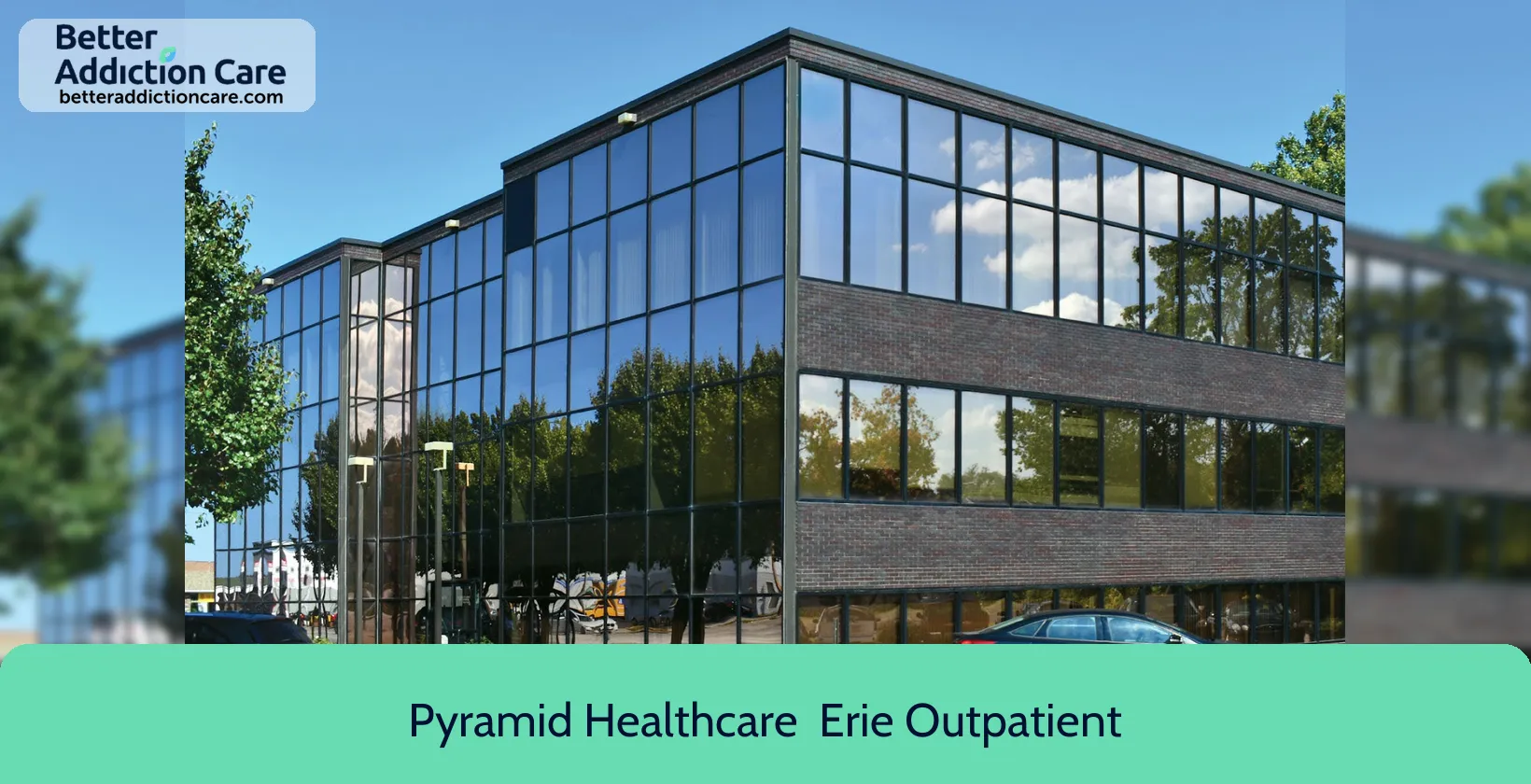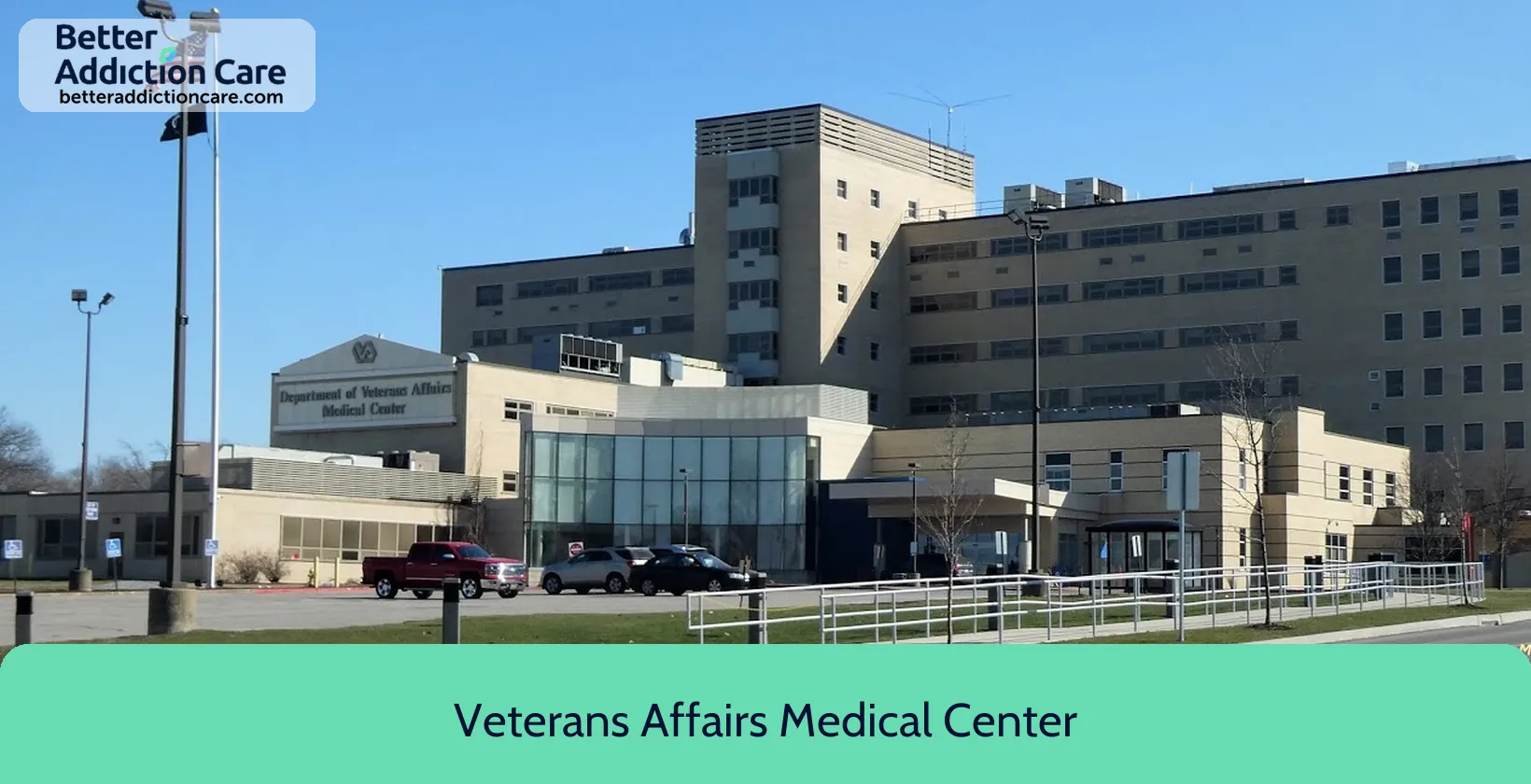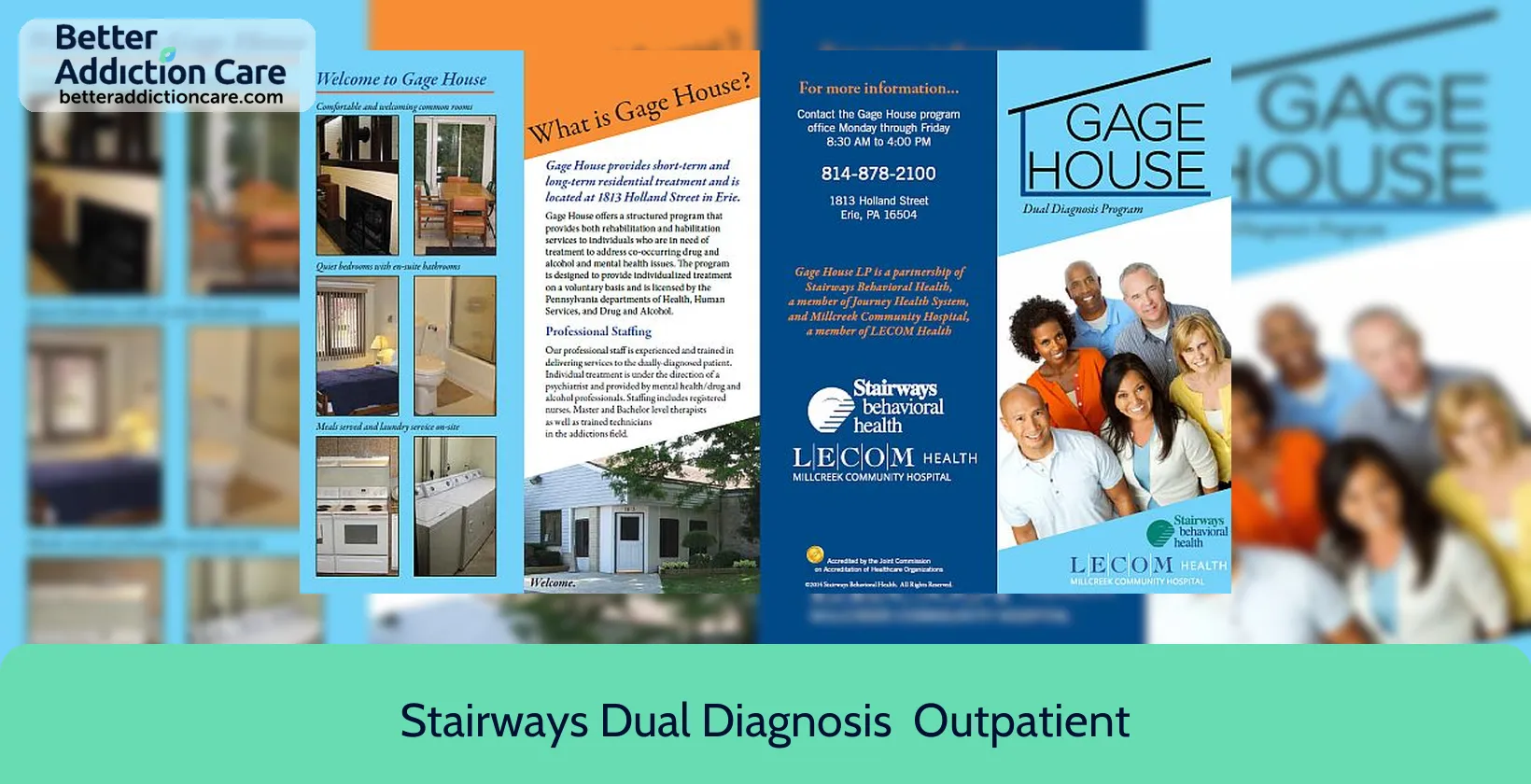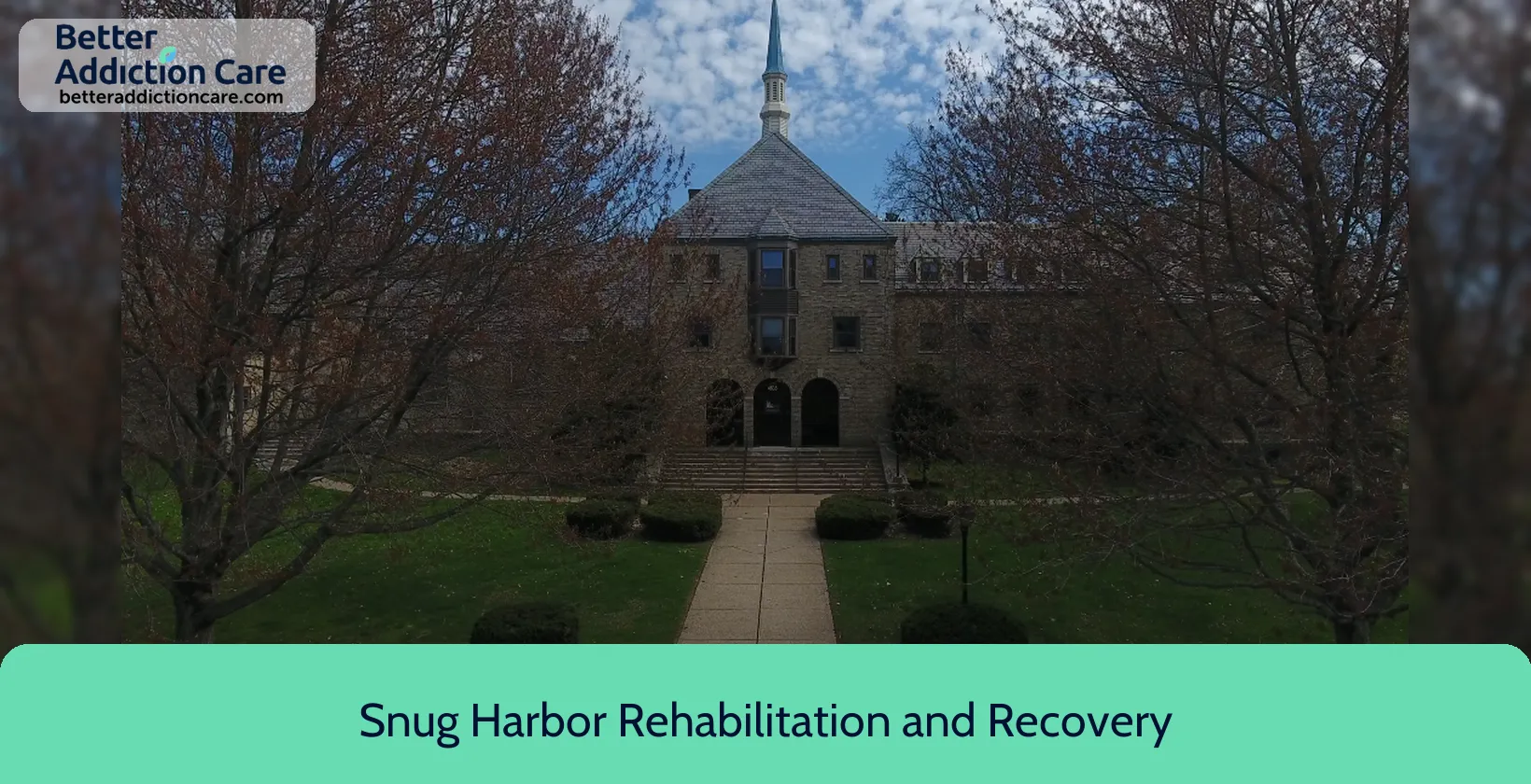Stairways Behavioral Health - RTFA

Overview
An essential component of the Stairways Behavioral Health network, the Residential Treatment Facility for Adults (RTFA) in Erie, Pennsylvania, provides specialized inpatient treatment for those with severe mental health problems or dual diagnoses. This 15-bed facility is intended for individuals who don't need the severity of a hospital environment but yet need organized, round-the-clock care. The RTFA offers a caring atmosphere that helps clients manage their diseases while developing everyday living skills. It serves as a transitional phase between inpatient treatment and independent living.
The main emphasis of RTFA is mental health therapy, with individualized care plans that take into account each patient's particular requirements and objectives. Clients with more severe addiction concerns may be sent to other Stairways Behavioral Health sites that are more appropriate for their requirements, even though the facility provides some help for drug use disorders. Psychiatric treatments, nursing care, case management, and individual and group therapy are often used in conjunction for treatment. Assisting clients in stabilizing and acquiring the skills necessary to carry on their rehabilitation outside of the institution is the aim.
During their typically 30-day stay, individuals at the RTFA get highly individualized treatment with the goal of improving their mental and emotional health. Unlike typical hospitalization, this phase enables people to create a routine, participate in treatment, and have continuous care in a less confining setting. Medicare, Medicaid, and private insurance are often included in the program's insurance coverage; however, potential customers are urged to verify their eligibility and benefits with their providers beforehand.
The emphasis on preparing clients for life after treatment is a crucial aspect of the RTFA experience. Clients collaborate closely with a committed team of experts to find community services and make relationships that will aid in their continued rehabilitation throughout their stay. This all-encompassing strategy guarantees that clients have the resources, networks of support, and techniques necessary to sustain their growth and prosper in their everyday life when they graduate from the program.
Stairways Behavioral Health - RTFA at a Glance
Payment Options
- County or local government funds
- Medicaid
- Private health insurance
- Cash or self-payment
- State-financed health insurance plan other than Medicaid
Assessments
- Comprehensive mental health assessment
- Comprehensive substance use assessment
Age Groups
- Adults
- Young adults
Operation
- Private for-profit organization
Highlights About Stairways Behavioral Health - RTFA
6.74/10
With an overall rating of 6.74/10, this facility has following balanced range of services. Alcohol Rehabilitation: 8.00/10, Drug Rehab and Detox: 6.00/10, Insurance and Payments: 6.00/10, Treatment Options: 6.97/10.-
Alcohol Rehabilitation 8.00
-
Treatment Options 6.97
-
Drug Rehab and Detox 6.00
-
Insurance and Payments 6.00
Treatment At Stairways Behavioral Health - RTFA
Treatment Conditions
- Mental health treatment
- Substance use treatment
- Co-occurring Disorders
Care Levels
- Hospital inpatient treatment
Treatment Modalities
- Family counseling
- Individual psychotherapy
- Cognitive Behavioral Therapy
- Dialectical Behavior Therapy
- Group counseling
Ancillary Services
Languages
- Sign language services for the deaf and hard of hearing
Special Programs
- Clients who have experienced trauma
Get Help Now
Common Questions About Stairways Behavioral Health - RTFA
Contact Information
Other Facilities in Erie

6.96

7.25

7.36

7.28

7.43

6.71

6.88

7.56
DISCLAIMER: The facility name, logo and brand are the property and registered trademarks of Snug Harbor Rehabilitation and Recovery, and are being used for identification and informational purposes only. Use of these names, logos and brands shall not imply endorsement. BetterAddictionCare.com is not affiliated with or sponsored by Snug Harbor Rehabilitation and Recovery.
